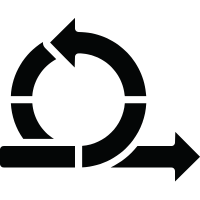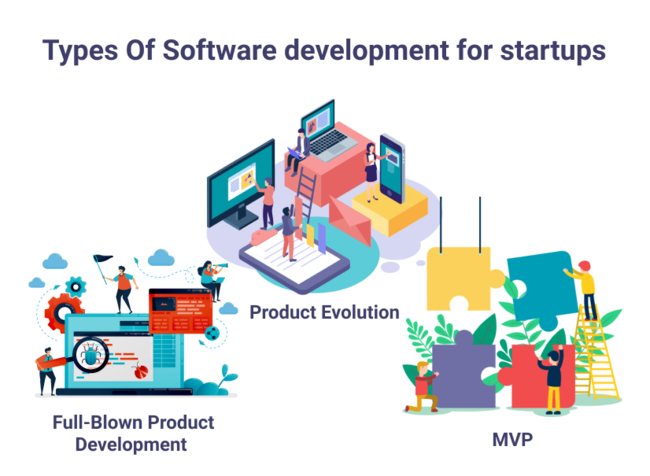Whatsapp & Meesho.
Airbnb & PhonePe
Uber & Spotify.
Looking like 3 poles-apart pairs of companies put together for no reason?
Any link you can think of between each pair?
(Quick Clue : Think of how they ‘start’ed ! )
Bang on, mate – you guessed it right! Each one of them were a ‘startup’ once-upon-a-time and now, are unicorns!
With the number of global startup unicorns crossing 800 as recorded in September 2021 – a whopping hike from only 65 as calculated in 2015 – it’s evident how a ‘startup’ is still a great idea even after considering the fact that 90% of startups fall on their face as the 2019 report by Startup Genome confirms.
So that brings the question – “To start or not to start a startup?”
The answer is – yes (terms & conditions apply, but with the tricks under your sleeve or software, turning the conditions into your convenience gets easier than what it currently looks like in your head – with TOO MUCH of contradictory facts spread out!).
With the startup wave taking over the global market scenario not-so-slowly but steadily – there’s not a better time to plan and launch a startup than today.
But before you start planning your startup journey, let’s first learn what are the basic components of a winning contemporary startup?
An idea, of course, the backbone. (Read: 11 Ecommerce Business Ideas)
A financial plan to back the perfect execution of your plan and investments, if required.
And a software to accelerate the growth!
While software may seem like a familiar term – many fail to understand that ‘software development’ and ‘software development for startups’ have quite a few differentiating factors between them besides some common ones. Up next is the A to Z of software development for startups that we have learnt hands-on while developing for a diverse spectrum of startups across 15+ countries !
Have you checked out what makes us the repeatedly chosen custom software product development partner – yet?
What Is Software Development For Startups?
Before jumping into the nitty-gritties of software development for startups – let’s first understand what it actually means.
By the way, did you check out our comprehensive product development guide for startups yet?
In simple words software development for startups is building software with a core goal of helping young companies trying to make an identity in the competitive market by doing full justice to their groundbreaking ideas by automating and streamlining the internal business processes to achieve specific business targets.
Let's Discuss a Software Makeover for Your Idea !
Why Do Startups Need Software Development?
“Oh, my business is not THAT big yet when it’s time to get software!”
That’s where many companies kill the potential of their business right at the root by eliminating the idea of smartly aligning the time of the brains-of-the-business, efforts of the entire team, resource-utilization and budget with the business goal. But the point is, many startups are still surviving on manual efforts or using basic tools that come for ‘free’ or even ready-made software, so what difference can a software make? Because if it’s not significant, there’s clearly no point investing in it! Listing below the ways you can bring in such ‘significant’ differences in your business through software development for your startup – saving time & money is obviously the zero-th reason, rest are below :

[1] Solve your problems – your way!
A lot of people will rant about ‘custom’ software solving ‘custom’ problems but hardly any one of them would ever clarify to you what ‘custom’ problem really is and instead, go over the common software development problems only. So, we will start with that instead. Let’s think of a really basic grocery essential that most of us are familiar with – bread. Even considering the fact that ‘bread’ is a daily essential, with time there have been innovations in this space too – while some companies continue to stick to the regular white bread, some have shifted to ‘brown bread’ or ‘multigrain bread’. Now both of these businesses should apparently have the ‘same’ kind of model and thus, similar problems – but that’s not true! Let’s look at a few aspects for instance :
[i] Lead Generation:
It’s a no-brainer that white bread is a traditional choice while brown / multigrain bread is something that the fitness enthusiasts (mostly the young adults to working professionals) would likely opt for. Such distinguished criteria obviously mean that lead generation for the mentioned offerings needs to be separately planned, too.
[ii] Marketing Strategy:
Considering the potent leads are different for a ‘white’ and a ‘brown’ bread company – the marketing strategy to convince them needs to be different as well. While a newspaper ad will do good to the former, a sample distribution collaborating with a gym will be good for the latter.
‘Custom’ problems – explained!
However, that’s only 0.0001% of the number of custom problems that a business faces in real life. Change the word ‘business’ to ‘startups’ and now you have 10X more problems !..and a custom software planned and developed for your startup solves MOST of them and curbs the intensity of the rest.

[2] Ensures The Team Is Always On The Same Page
Whether it’s a team of 5 or 500 – it’s important that every update, modification, tweak in process for instant impact, completion or deadline and more of such factors are made known to the team – whether they use require it partially or fully, often or sometimes, for the sake of transparency and minimized process anomalies. Software development for startups ensures that employees from all hierarchies are on the same page by centralizing every bit of action taken over the business data along with levying relevant access controls.
[3] A seasoned HR in place without a monthly salary & coffee expense!
Recruitment is a crucial part of any business and especially for startups because it ‘makes or breaks’ the initial flourishing phase and hence the future of the startup, too. But then – whether bootstrapped or investment-fed – a startup generally has to double-verify the estimated impact of any expenditure as the success of it is always uncertain. In such a scenario, hiring an HR is a big deal in itself for two basic reasons :
[i] The hiring needs after the primary team set up is mostly nil or once-in-a-bluemoon
[ii] Freelance HR services doesn’t do complete justice to the precise criteria fitting the particular hiring needs of a startup and an experienced HR is too expensive to invest in
Incorporating a bespoke HR module during custom software development for startups you can achieve quality hiring goals without bearing a significant lingering expenditure!
[4] Frictionless Upscaling
For a startup, growth is always on the cards! On that note, growth demands upscaling. Regardless of what industry your startup belongs to or how unique your business workflow is – upscaling is an imperative need. For example, who doesn’t want more customers? More customers means processing a larger number of orders and thus, stronger infrastructure support and that’s exactly what you can achieve with easy scalability in your software system.

[5] A customer service so personalized that your customers won’t know for real !
More customers are great but processing the bulk queries that come along aren’t that great a feeling – right? So, does that make the way to growth a hindrance to itself? Well, obviously not – thanks to custom software, that solves your problems, your way! With custom software development for startups you can actually have the one-stop near-perfect (and more attentive!) substitute to multiple customer servicing teams working in rotating-shifts to attend to bulk customer queries at no recurring cost and no constant reviewing required. Sounds good? Works better (read, peak quality productivity and least errors)!
[6] Agile, resourceful and resource-optimized Process Management
Process management – as the name suggests – implies a large sphere covering management of the total task set associated with the business processes. With custom software development for startups there’s much flexibility and scope to try out new alternatives to achieve goals optimally. An MVP or prototype with an incremental approach works great as you can test the market first and then hit the ground with a tried-and-tested robust development.
Advantages that startups get from a software development company
When the startups start their journey or think of achieving the ‘next big leap’, in most of the cases, with its great set of advantages, a software built around the specific purpose of the startup, eases the task to grow.
Let’s answer one common question before moving on to the advantages of software development for startups,
“Are these advantages applicable for startups from every industry?”
The answer is – yes!
Here’s a list of advantages that you can get from software development for startups collaborating with the right software development partner!

[1] Access a diverse talent pool without the hassle of ‘hiring & maintenance’
For a startup, every penny spent counts! Given that, it’s a real challenge to develop the software product without compromising the quality yet not burning a hole in your pocket. While hosting an in-house software development isn’t an option, neither is developing software with the ‘least charging’ development team as it kills the potential making that ‘least charge’ absolutely of no worth.
Handing your software development needs over to an experienced development company saves you from this struggle! Comes across as a secret sauce in itself as outsourcing software development for startups enables you to access a talent pool with all skills required to develop your software the best way possible and also, doesn’t stand as a recurring expense even when the need is over! So basically you pay for the skills only till you need the service.
[2] No More Tech Debts & Delayed Decisions
A common problem that the startups face is tech debts, that is, the priority tasks getting delayed while trying to meet a deadline. Legit, with limited resources and several aspects requiring attention all at once – management gets difficult beyond measure. Outsourcing software requirements ensures that your inhouse workforce can focus on management areas requiring immediate attention for decision making while the development partner takes responsibility for delivering a software maintaining premium quality and effectiveness.
[3] All Details Done To Perfection Without Any Hustle On Your Part
Given a chance, would you rather choose to..
[i] Look after every step of development (including the bugs and fixes!)
OR
[ii] Oversee the experts dealing with the good-bad-and-ugly of development and then walk off with the ownership of the developed software?
Option 1? Good!
Option 2? Even Better (& Smarter!)
The startups turned startup unicorns chose option 2 as well and certainly, they didn’t have to regret. The prime reason? Like you know your business idea well, the development team knows theirs and it’s only when the two collaborate – the growth curve takes a steep rise. All you have to do is tell them what you want to develop and check how feasible it is to your chosen development partner – that’s all! If the answer is yes, all you have to do is sit back and test the developed modules while the team manages end-to-end software development !

[4] Hassle-Free Risk Management
Risks are almost like the middle name of ‘software development’ and clearly the pros can manage them harder than the first timers!
Wanna Know Our Startup Success Stories ?
By outsourcing the task of software development you also hand over the ‘face and manage risks’ part to your development partner and meet the ready software when it has overcome the risks and is at its absolute best.
[5] Improved Security & Insights Powered By The Development Partner’s Experience
The security factors make or break a software and it’s no secret. Imagine your path breaking business secret leaking off your digital workflow..that’s what may happen if you hand over the development to the wrong hands! With the right partner you get to understand the security measures and let their hands-on experience on similar projects be the deciding factor in case of having foolproof security in place.
.png)
SDLC Models We Leverage to Support Software Development For Startups
We’ve all heard this line – “It’s not just about the destination, it’s about the journey”. Coincidentally, these lines make sense while discussing a software development process as well. How? Well, depending on the predictability and the amount involvement required from your end during the entire software development process, the SDLC models can be divided into the following categories –

1. Waterfall
A go-to choice for software development when you are sure about the end-to-end development and project scope of your solution with little to no unpredictability. With a waterfall model, you get a sequential approach for your software development where each phase is properly tested and completed before moving on to the next.

2. Agile
There are situations when the project scope is not completely finalized from the get-go and your solution needs to adapt and evolve depending on the current business requirements & market trends. With an Agile approach, your service provider will develop your solution in short-term deliverables called “sprints”. This modular approach for development allows your solution to have room for optimization throughout the development process.

3. Lean
If you wish to develop a software solution that optimally uses business resources and has no room for unnecessary development activities, then Lean should be an ideal choice for you. This model requires users to focus on only adding the critical features to the solution with a customer-centric approach along with short feedback loops and better collaboration.

4. Iterative
This model breaks down complex development projects into manageable iterations. Each of these iterations goes through its own software development cycle including – data gathering, designing, development & testing. This provides the developers multiple opportunities to refine the overall architecture and also promotes parallel software development. However, it is necessary to keep in mind that using this model for large-sized projects can be extremely time and resource-consuming.
.png)
Our Startup Software Development Services
Startups can have different software development services requirements depending on the budget, operational needs and pre-existing infrastructure. Here’s a list of software development services we provided to the companies we have previously worked with:

(a) Full-Cycle Product Development
If your need is to take your novel software idea and turn it into a reality, then full-cycle product development should be your go-to option. The service providers assist you to build your solution from scratch in this method, starting from the ideation all the way up to developing and deploying the solution to its intended user base.
.png)
(b) MVP Development
Developing a minimum viable product first, and then committing to a full-scale software solution is a popular choice among startups these days. Why? Firstly, the cost of developing an MVP is significantly lower than building a complete software solution as it includes just the core logic and the necessary features. And secondly, with an MVP you get the opportunity to capitalize on the user feedback as there is a large chunk of development yet to finish.

(c) Custom Integration
Startups often need to enhance the capabilities of their solutions to keep up with the latest market trends and increasing competition, and going through a new development process every time you need to add a new feature or tool can be an excruciating task. The reasonable solution to this situation can be opting for customized tools, APIs, and external platforms to help you reach the desired efficiency.
.png)
(d) Product Modernization
When competing with the market leaders of a certain industry, one of the most effective methods that startups use to build their customer base is to use cutting-edge solutions to provide services and features that their competitors aren't offering. We provide product modernization services where we thoroughly analyze your pre-existing solution and recommend the most optimal upgrades based on our years of experience in the software industry.

Latest Software Development Trends for Startups
Speaking of cutting-edge technologies, startups can leverage them to improve multiple aspects of their business by prominent levels. Starting from operational efficiency & customer satisfaction to decision-making & security protocols, modern technology trends are covering every major part of a business. Here are some of the most in-demand technologies:
.png)
1. Cloud Computing
Startups often operate on a shoestring budget, which means solutions that are super expensive to build and maintain cannot be an option for them. This is where cloud computing joins the party, it allows users to store, manage and process data without actually owning a single piece of infrastructure. Additionally, customers are much more inclined towards trying these services as it allows them to stay away from the hassle of maintaining servers and keeping the solution up-to-date.
.png)
2. Artificial Intelligence
Discussing all the ways in which artificial intelligence benefits businesses is gonna take a while, but TLDR – by integrating this technology into your system, you almost instantly boost the data processing, predictive and customer segmentation capabilities of your business. For more details, you can check out our AI development services.
Basically, if you want to get the best of your startup’s unstructured data and want to draw insights that help you with the upcoming sales forecasting trends, or if you want to provide personalized solutions to your customers, or want to structure an effective marketing campaign based on what has worked and what hasn’t then an AI will be a great addition to your business.

3. Progressive Web Apps
If you’re looking for a solution that lets you get the best features and functionalities of both web and mobile applications in a cost-effective way for multiple platforms, then progressive web applications are going to be your silver bullet. Additionally, a PWA further enhances your software by providing features like –
- Faster Loading Speed: with the implementation of service workers with the new manifest version, you can significantly enhance the capabilities of your web applications.
- Work Offline: PWAs can store and manage cache data allowing users to have some control over the web applications even without a stable internet connection.
- Install Directly Through the Browser: browsers follow the manifest JSON to install and launch applications via the browser, this improves the user experience saving them from any extra hassle.
.png)
4. Microservices and Headless Architecture
Modular systems have a plethora of benefits ranging from better scalability & flexibility of your solution to faster development cycles. With the front-end and back-end working independently a headless architecture can support omni-channel services, meaning your solution can have more than one back-end solution for better compatibility across multiple devices. You can even choose to operate different components of your application with completely different technologies.
.png)
5. Blockchain
Decentralized platforms have been “THE” choice for businesses when it comes to transparent and secured payments. But that’s not the only benefit to yield from the blockchain technology while developing a software solution for your startup, here’s how –
- Smart Contracts: Develop self-executable contracts that ensure transparent and fair payments over the Internet without any unnecessary protocols to keep reliability in check.
- Tokenization: Converting real-life assets into tokens(popularly known as NFTs) allows startups to share their equity with investors in a secured format.
- Crowd-Funding: ICOs and STOs help startups to collect the initial capital they need from their supporters, this is also a good way to validate the concept of your solution directly from its users.
.png)
6. IoT
Some startups have a significant amount of physical infrastructure that continuously generates valuable insights regarding operational bottlenecks. Using IoT devices to monitor this data and draw insights from it allows startup businesses to cut unnecessary business costs and boost profits. In addition to highlighting the issues, IoT devices are installed all over warehouses & production floors to gain insights that can help businesses to gain data regarding day-to-day operations, collaborating with other technologies like AI and machine learning this data can be leveraged to make better business decisions.

How Much Does Software Development For Startups Cost?
That’s more like asking how much does a house cost?
What ‘house’ are you looking at – A hut? An apartment? A mansion?..
Practically a ‘house’ can mean so many things and clearly the price varies accordingly!
Similarly, there’s no fixed concept of a ‘startup’ and thus, no fixed price tag.
However, depending on a few factors like the complexity of business logic, what features you choose, by what time you want it developed etc. , you can expect the cost of software to cost somewhere around USD 15K for a simple software and USD 50K+ for an extremely complex one.
The Process Of Software Development For Startups
[i] Have a clear understanding of what you expect from the software
[ii] Get in touch with a software development development partner with extensive experience in software development for startups
[iii] Share your requirements with the team and weigh their compatibility against your needs
[iv] Once both are a match – mutually build a project outline first and then flesh out with every possible detail to ensure both the parties are clearly aware of the requirements and also there’s no last minute (negative) surprise!
[v] Sit back hassle-free and test to provide feedback stating if the modules are running as per your vision
[vi] Get away with the developed product and its IP rights!
Why does software development for startups with BinaryFolks make for a wise choice?
When it comes to software development, the startups generally have either of the two things in mind – a software that comes at the least cost and a software that serves the job the best possible way. Clearly, to get some ‘value’ for money, you need to pay the standard price first! Software development for startups with BinaryFolks enables your startup to move up the growth trajectory uninterrupted while freeing maximum manual efforts and minimizing errors . Our skilled & experienced software developers have hands-on expertise in delivering cutting edge software to several startup clients from across almost all the industries. Here's what to expect if software development for startups with BinaryFolks is on your mind:
Driven by ex-engineers from Google, Amazon & Salesforce
101% Value For Money (+1 for Our Complimentary Consultation before You Spend Your 1st Dollar!)
Reviews That You Can Verify!
Safeguarded Business With An NDA
Out-Of-The-Box Innovations
Eye For Details
Questions Galore (Until Your Requirement & Our Understanding are mirror copies!)
Insight-Rich Scope Enhancement
Intense Domain Expertise
Close-knit feedback loop
FAQs
Startup software development is the process of developing tailor-made solutions for businesses in their initial stage. The development is generally outsourced to a software development firm with a team of highly qualified developers who understand your business needs and develop the solution accordingly. In some cases, startups have to go head-to-head against pre-established businesses with a promising user base, in those cases, the need for a solution that helps the startups to introduce something new into the market becomes even more crucial.
Finding a software developer is easy, they are literally everywhere. However, finding the “right” startup software developer is a completely different game. There are some deciding factors that differentiate the two, including –
- 1. Experience and Technical Expertise
- 2. Practicality in their Estimates
- 3. Communication Patterns
If you want an in-depth guide for all the primary steps linked with choosing your ideal software development partner then check out our blog here: How to Choose the Right Custom Software Development Company?
Custom software development helps startups gain a competitive advantage against competitors working with off-the-shelf solutions by adding unique features and functionalities that align with your business goals. These solutions not only make your business scalable but also help with streamlining and optimizing business processes.
If we get into the finer details there can be a lot of reasons why a company would find themselves in need of developing a custom software solution, however, two factors stand out the most –
- 1. Working with multiple software and services is affecting your business efficiency and you need a singular solution to get things done.
- 2. If you want absolute control over your software solution, from the development all the way down to the maintenance and updates.
While Lean startups focus on minimizing wasting resources and focus on developing solutions with the utmost efficiency and a customer-centric approach. Agile is used for the improve-as-we-go concept, which means the entire software model is not finalized at the beginning of the development, the business and the service provider complete the software in short-term project deliverables, called “sprints”. This allows them to adapt to the ongoing trends and have a modular approach to the software at the same time.


